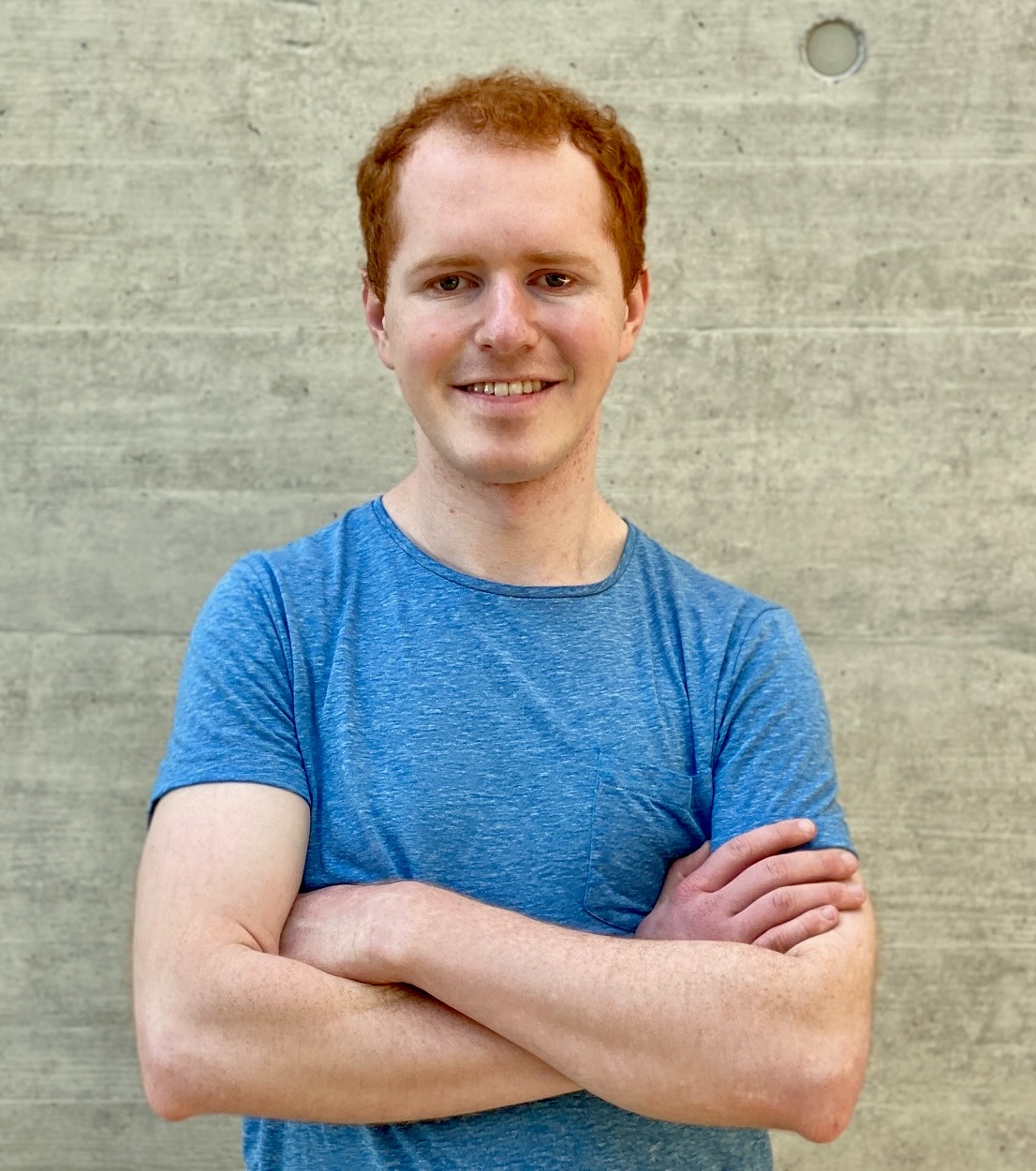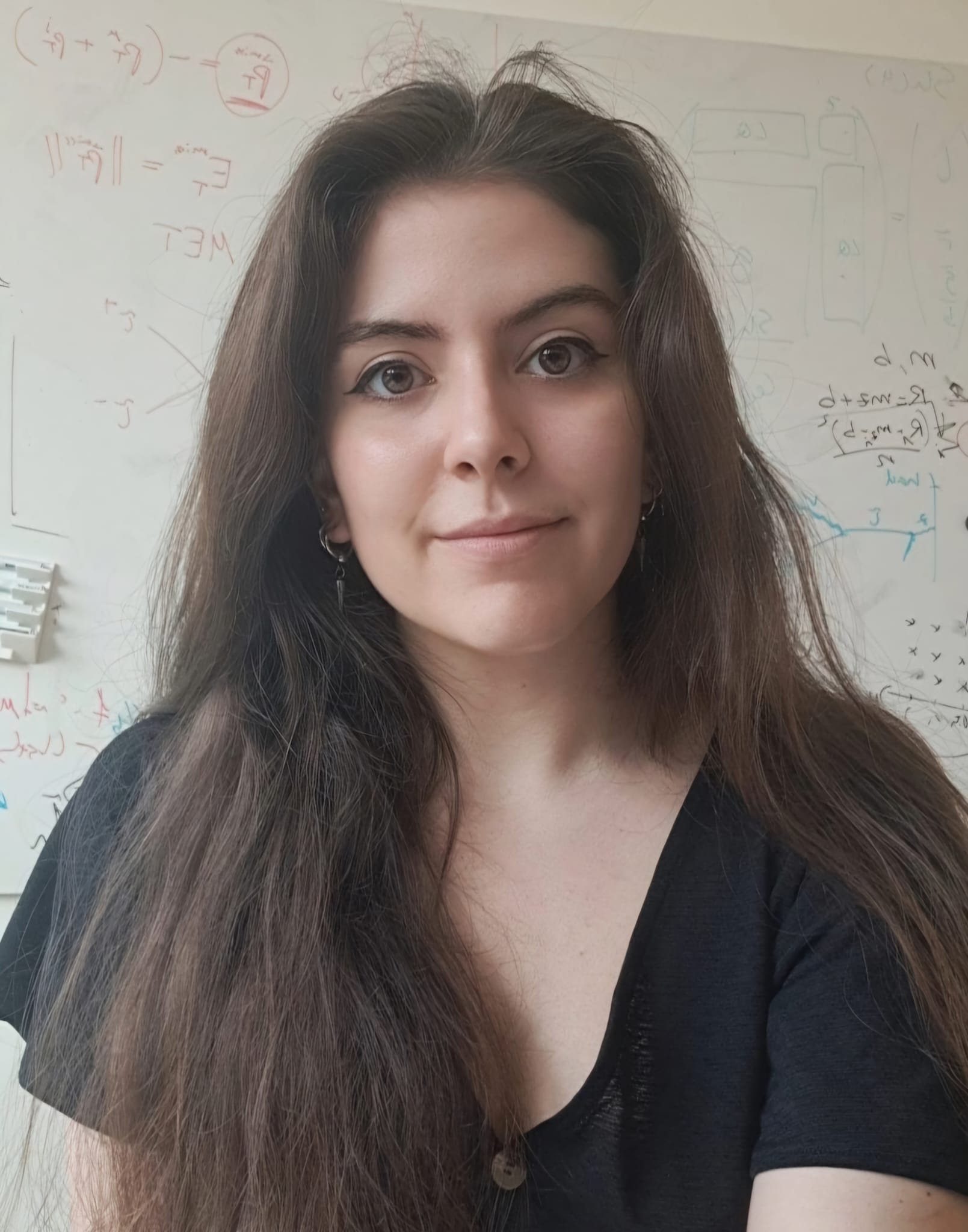1. MPP PhD Representatives
We are the representatives of the International Max Planck Research School (IMPRS) PhD students. Each of us represents a different research department. Below you can find important information on the groups we represent and how to contact us.
We will be the ones organizing social events, keeping you informed about what is going on at the institute and even at other Max-Planck institutes, and keeping an eye on our working conditions. You can always come to us, especially the internal representative of your group, if there are any problems concerning your PhD.
IMPRS is a big family, including PhD students in physics who work at the MPP, at the Technical University of Munich (TUM) and at the Ludwig Maximilian University of Munich (LMU). We remark that all students working at the MPP must get an MPP account, allowing them access to several services reported below. If you are a PhD student at MPP and still did not receive your account credentials, please contact Dr. Thomas Hahn (hahn@mpp.mpg.de).
We also have a WhatsApp group for social events! If you are interested in joining it, please contact one of us.
Representatives Committee Spokesperson |
Speaker of Experimental Department, |
Speaker of Theory Department, |
Speaker of Experimental Department, |
Speaker of Theory Department, |
Speaker of Experimental Department, |
As mentioned before, some of the services provided by MPP are exclusive to those PhD students having an MPP account. Therefore, we will devote:
-
Section 2: General information, regarding all IMPRS students (IMPRS bureacracy, university bureaucracy, other miscellanous);
-
Section 3: Services for MPP students (MAX portal and SAP, IT stuff, MP Digital Library, employee support services).
2. Information for all IMPRS students
2.1. IMPRS bureaucracy
Starting at the MPP, you are part of the IMPRS (International Max Planck Research School), which is a graduate school. With your application to be a PhD student, you automatically applied for the IMPRS. You need to have an official supervisor who belongs to a university so that you can submit your PhD thesis. Mainly there are two universities possible, namely TUM and LMU: below, you will find more info about bureaucracy related to each one of them.
On top of that, being part of IMPRS comes with some duties, namely:
-
Setting up an Advisory Panel meeting, to report the status of your research and discuss with your supervisor(s);
-
Giving 3 IMPRS talks, ideally distributed along the length of your studies.
You should have received your personal access URL to the IMPRS Student Portal (if this is not the case, please contact the IMPRS secretary!). Make sure to save it: it is really important to upload there all the material you used both for your APM and for your IMPRS talks.
2.2. TUM bureaucracy
The TUM graduate schools have (somewhat) recently been reorganized. As such, many of the links below are outdated, although the general procedures are still the same. We are working on updating the information in this section. Until then, please consult the website of the TUM School of Natural Sciences.
The TUM also demands PhD students to join its own graduate school (TUM-GS). You do not have to be part of the TUM-GS before you start here, but you should not wait too long to register there. The registration as a student (matriculation) is not mandatory but can be done after registration to the TUM-GS.
2.2.1. TUM-GS Registration
To make things more complicated, there is also the graduate school of the Physics Department of the TUM (aka "doctoral candidacy list"/"Promotionsliste"). Each of the other departments have their own graduate school as well and the TUM-GS supervises them all.
Luckily, you don’t have to register with both of them separately.
First, you need a Supervision Agreement. The "Supervisor" is the one who signs your diploma (Doktorvarter); and the "mentor" has to be someone else with a finished PhD. The signature for the "Faculty Graduate Center Physics" makes its coordinator (Philipp v. Loewenfeld); but he can give his signature after the registration so you don’t have to bother him.
Then you go to the website of the TUM-GS, register there and start an application for a PhD position. There, you can put in some data and can print out the application form. They also give you a list of necessary documents.
Then you just bring everything to the dean’s office (Dekanat) of the Physics Department in Garching: Ms. Karin Maria Lichtnecker.
With a successful registration, you are part of both the TUM-GS and the graduate school of the Physics Department.
2.2.2. Matriculation/Enrollment
This site gives you info about the matriculation and a how-to. As a PhD candidate you can enroll at any time; but only for 6 semesters in total; also the first semester of your enrollment is counted whole, even if you enroll late.
2.2.3. Teaching
As a graduate from the TUM, you need to get 2000 teaching points. We are considered "external" PhD students and only have to get a fraction of the guys sitting in Garching.
See this website for more info: https://www.ph.tum.de/academics/phd/duties/
2.2.4. Other duties
There is one more duty. As a TU PhD student you have to participate in the TUM GS kick-off seminar. It is a three-day event which should teach you how to successfully complete your PhD. When there is still a free place available, be quick: Normally, every seminar is booked out within minutes.
At this seminar, they will tell you that you also have to participate in other soft skill seminars. Luckily for us, our IMPRS colloquium counts as soft skill seminar…
2.3. LMU bureaucracy
2.3.1. Matriculation/Enrollment (as an international student)
In case you come from outside Germany, you will apply for "Individual doctorate" as an "international student". There are two deadlines every year before the summer/winter semesters start, 15th Jan. and 15th Jul respectively. You need to finish all the steps below until (3) by then. The procedure shown here is in 2017. Please clarify if it is up-to-date by contacting corresponding offices.
(1) Find an official supervisor and receive supervision agreement letter
You need to find an official supervisor who is a professor in LMU and can take the role of dissertation.
Professors in Faculty of Physics : http://www.en.physik.lmu.de/personen/professoren/index.html
After you have an agreement on the dissertation with one of them, you will receive the supervision agreement letter. You need to have two copies, one for the Dien’s office and the other for your backup.
(2) Submit documents to Dean’s office and receive admission letter
You need to visit Dean’s office and submit the documents to the secretary.
Dean’s office secretary: http://www.en.physik.lmu.de/personen/sekretariat/podolski/index.html
You need to submit
-
application form (They will give you)
-
CV (No gap in the timeline until you will be enrolled)
-
certificate and transcripts (All the university level education)
-
supervision agreement letter
NOTE:
-
You may be asked to bring "original form" of certificates. It is not original, as long as the stamp or sign on the document is just in printed form. Thus you had better preparing original certificates (of Bachelor/Master completion ) with you.
-
The process might take several weeks.
(3) Submit documents to International Office
You need to visit International office and submit the documents.
International office : https://www.uni-muenchen.de/studium/kontakt/international/io_kontakt/oeffnungszeiten/internationale_zulassung/index.html
Guidelines for applying for doctoral studies(international applicants): https://www.uni-muenchen.de/studium/studium_int/studium_lmu/promotion_aufbaustud/index.html
You need to submit
-
application form (They will give you)
-
CV
-
certificate and transcripts
-
admission letter
-
supervision agreement letter
NOTE:
-
You may not need to submit supervision agreement letter.
-
Proof of the German language skills listed in the guidelines is not needed.
(4) Enrollment
2.4. Licenses/Software/Services
TUM students can install
-
Mathematica, MatLab, Origin, LabView, … (login with your TUM account, navigate to TUPH → fph)
LMU and TUM students can use the LRZ services:
-
LRZ software pool (everything…)
-
host projects on GitLab
-
use LRZ Sync+Share (similar to Dropbox, 50 GByte)
-
use a whole bunch of other services (overview)
2.5. Miscellaneous
2.5.1. MPS Doctoral Guidelines
Guidelines for doctoral students in the Max Planck Society can be found on
2.5.2. Psychotherapeutic and psychosocial advisory service (Studentenwerk)
Problems related to studies and personal conflicts (free for enrolled students)
3. Services for MPP students
3.1. MAX portal
The MAX portal (https://max.mpg.de) serves as the central hub through which MPP employees can access comprehensive information pertaining to institute events, organizational details, and available services. Noteworthy features encompassed within MAX include, among others:
-
the MPP calendar
-
room booking facilities
-
canteen services
Moreover, from MAX you can also access the SAP portal, where various PVS HR services are accessible, in particular:
-
travel requests
-
leave requests
-
access to paystubs
3.1.1. Conflict Management
The MAX portal also provides information on conflict managemant (https://max.mpg.de/sites/mpp/Konfliktmanagement/Seiten/conflict-management.aspx) and reporting points (https://max.mpg.de/Service/Beratungsangebote/Pages/Contact-and-reporting-points-.aspx) for example in cases of scientific missconduct or discrimination.
There is also further information on reporting misconduct from the MPG, which can be found under
3.2. Useful IT Stuff
For a comprehensive guide on all the relevant IT services available at the Institute (E-Mail system, VPN, Printers etc.), please check out this page:
3.3. Other useful information
3.3.1. Max Planck Digital Library
The Max Planck digital library supports scientists from all Max Planck institutes with a broad portfolio of services in the fields of information provision, publication support and research data management:
4. Career developement
The MPP allows students to take a leave during their PhD to pursuit an internship for example in the industry.





